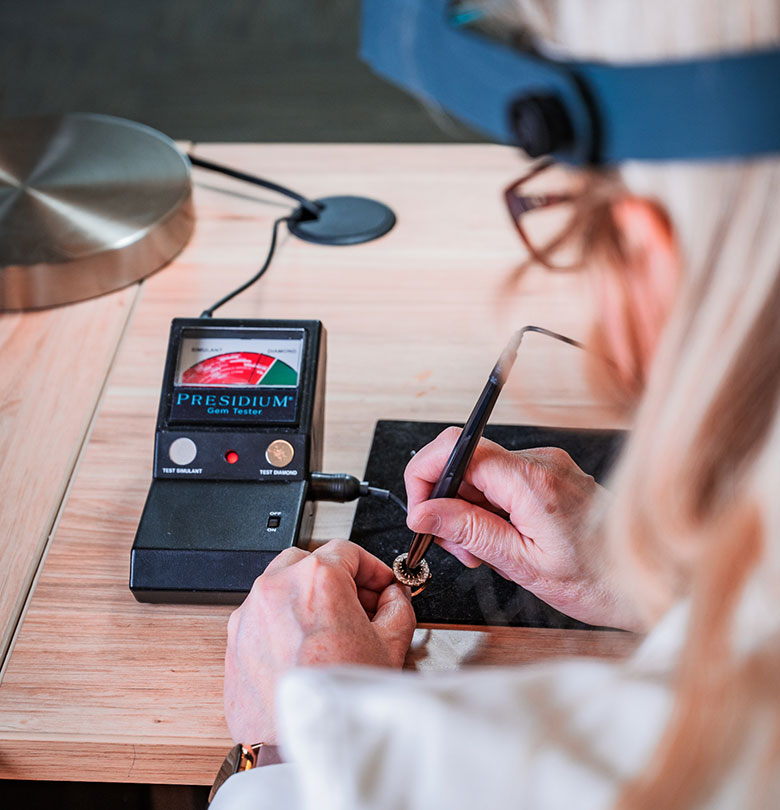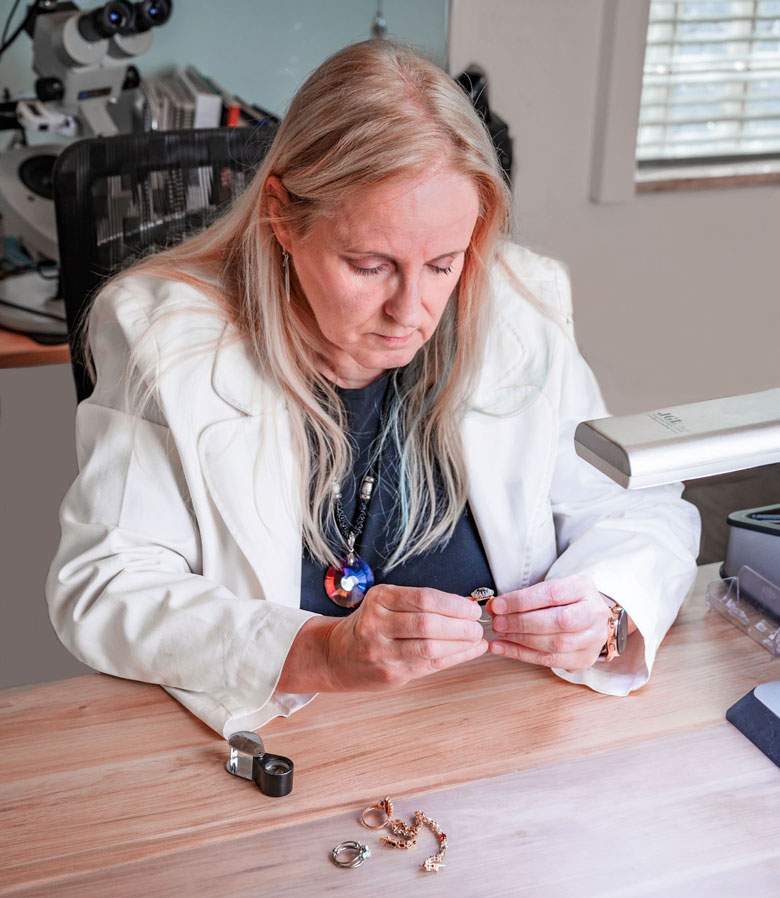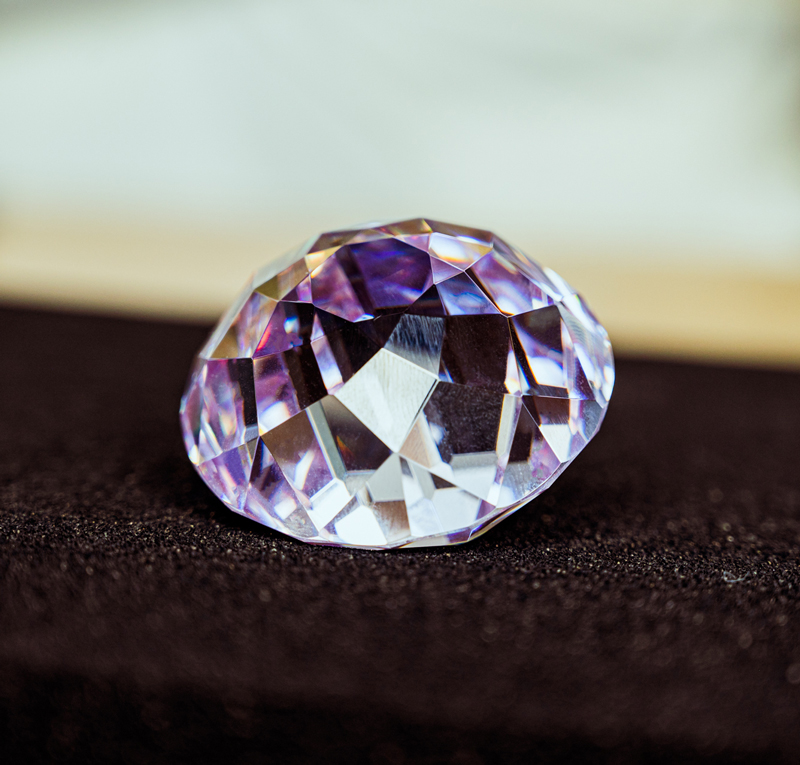FAQs & Testimonials
TESTIMONIALS
What Our Clients Are Saying
Browse through testimonials from a few of our many satisfied clients over the years.
How Should A Consumer Choose Their Jewellery Appraiser?
Appraisals need to be undertaken to the highest standards available. The highest level represented by the Canadian Jewellers Association is "Certified Appraisal Professional(CAP)". CJA is the national jewellery trade association that builds trust, awareness, understanding and desirability for Canadian jewellery products within Canada. CJA has been the voice of the Canadian jewellery industry since 1918 and a full list of current CAP-CJA members can be obtained by visiting the CJA website. (Stellar Gem Services is also GIA Accredited.)

What Is A Certified Appraisal Professional?
CJA has established a set of requirements and a series of practical and theoretical examinations that test the appraising skills of jewellers and gemmologists. CAPs must have formal gemmological qualifications and experience within the industry. Upon successful completion of all criteria, these jewellers and gemmologists are considered qualified and are empowered to emboss their appraisals with the current year's seal, signifying their CJA - Certified Appraisal Professional (CAP) designation.
Have Your Jewellery Appraised In Person by Our Master Valuer Gemmologist
Have all your precious personal, family, heirloom, estate, and investment jewellery, gemstones and watches professionally and securely appraised here in the Okanagan Valley.

Why Should Someone Have Their Jewellery Appraised?
Although your appraisal appointment is the ideal time to have your jewellery inspected for wear and tear, the most common reason for obtaining an appraisal is for insurance valuation purposes (i.e. Insuring against loss, theft, and damage) An appraisal may be necessary after-the-fact to settle a claim. Another common reason is to determine jewellery value in settling an estate.
How Much Should An Appraisal Cost?
Appraisal fees vary according to the service being rendered, level of detail, and the intended use of the appraisal. A qualified jewellery appraiser will provide you with an estimate of the fees, based on your needs and the intended purpose of your appraisal, prior to commencing the appraisal.

Do I Have To Make An Appointment?
It is always advisable to book an appointment for appraisal or gemmology work. Interruptions are kept to a minimum.
Do You Buy Or Sell Jewellery?
We do not. It is a conflict of interest for us as an appraisal business to do so.
I’ve Bought A Ring From An Online Vendor. Did I Get Ripped Off?
For a small fee, we can take a look at what you purchased and compare the fine print in the listing to what we see under the microscope. Hopefully everything matches! If you need an appraisal, that can certainly be done as well.
I’d Like To Buy A Ring That I Saw On Facebook Marketplace But I Need Someone To Check It Out For Me First
That’s something we do all the time and charge a small fee for this service. Here’s what we would suggest: if you as the buyer are paying for our services, ask the seller to come downtown to our gem lab. We’ll assess the piece and ascertain if it matches the description in the ad; once the seller leaves, we will contact you for payment of services (if you haven’t done so already) and let you know what we’ve discovered during our examination. You can then decide if you want to buy the ring or not. Please be advised that we don’t confirm the legitimacy of any negotiated price, unless you want us to formally appraise the item.
Why Aren’t There More People Appraising Jewellery?
An appraiser should be a gemmologist, which is a person trained in diamond grading, and the analysis/identification of gemstones. Becoming a gemologist is an arduous and expensive process, requiring hundreds of hours—if not years of theoretical study and practical experience. A gemmologist must purchase or have ready access to a microscope, refractometer and other specialized tools. Yes, it is true that costs can be prohibitive to many people.
Appraising is a specialty, regardless of the discipline. As time progresses, an appraiser will have undertaken additional (and ongoing) training in valuation theory, to learn how to analyze the primary and secondary markets in which—in our case—jewellery, watches and gemstones are bought and sold. Ideally, a competent appraiser should have had retail experience in some capacity in the jewellery industry; goldsmithing experience is also useful in grading craftsmanship and knowing how an item is constructed. Above all, one must be constantly learning—whether it concerns developments in the industry or finding new tips and tricks in producing appraisals. There is always lots to learn. It is also important to network with peers, and there is no better way than to belong to one or more valuation organizations, such as the National Association of Jewelry Appraisers, the International Society of Jewelry Appraisers, and the American Society of Appraisers. As appraisers, we try to know everything (!) but in realizing our own limitations, it is handy to know someone who can help, if and when the need arises.
Proper training and earning credentials take time and money. Equipment is very expensive, and the requirement to craft and publish a thorough and accurate appraisal each and every time is a challenge. Unfortunately, there have been many poorly-written documents, replete with spelling errors, misidentifications and inflated values issued by unqualified people through the years. The requirement for professionally trained appraisers is ongoing and the truly, independent specialists will always be in demand.
I’ve Noticed That You Spell ‘Gemmology’ and ‘Jewellery’ In Different Ways
In Canada, the UK, Europe, New Zealand, and in parts of Asia the proper spellings are ‘gemmology’ and ‘jewellery’, whereas in the US, it is ‘gemology’ and ‘jewelry’. However, because we are in such close proximity to our American neighbours (neighbors), both sets of terms are commonly used here. The rest of the world may do so as well.
